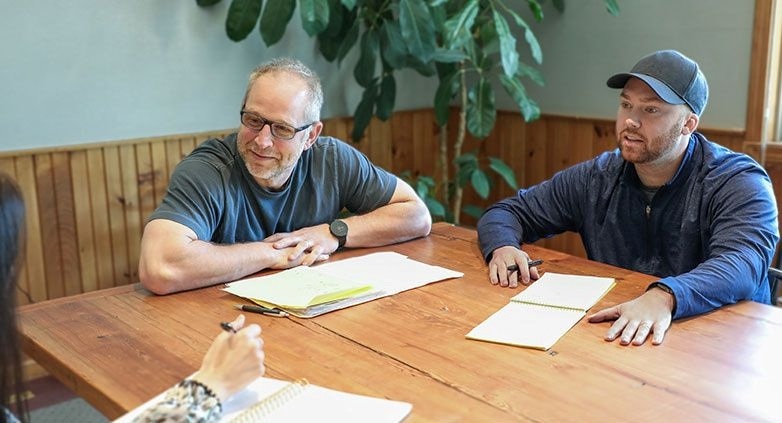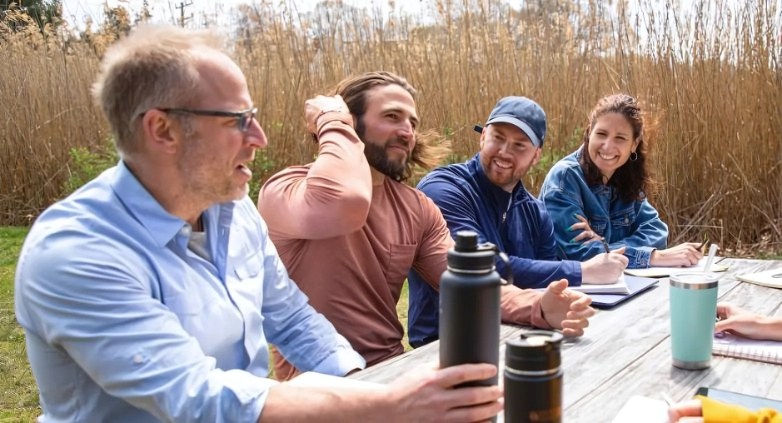
Steps to Help Someone with Addiction – A Comprehensive Guide
Watching a loved one struggle with addiction can be overwhelming.
You may feel helpless, frustrated, or even guilty, unsure of what steps to take to support them. While you cannot force someone to recover, you can play a crucial role in encouraging them to seek help and creating a supportive environment for their journey.
Recovery is a process that requires patience and commitment from both the individual and their loved ones. In this guide, we will walk through the 7 key steps to help someone with addiction:
- Educate Yourself About Addiction
- Approach the Conversation Thoughtfully
- Encourage Treatment and Recovery Options
- Set Healthy Boundaries
- Offer Ongoing Support
- Take Care of Yourself
- Know When to Seek Professional Help
If you need immediate guidance, Project Courage offers professional support for individuals and families navigating addiction.

Understanding Addiction
Addiction is a Disease, Not a Choice
Substance use disorder is a chronic disease that affects brain function and behavior. According to the National Institute on Drug Abuse (NIDA), addiction alters brain circuits related to reward, stress, and self-control, making it difficult for individuals to stop using on their own.
Recognizing the Signs of Addiction
Common physical, emotional, and behavioral signs of addiction include:
- Changes in mood, irritability, or depression
- Secretive behavior or withdrawal from family and friends
- Financial problems, job loss, or neglecting responsibilities
- Increased tolerance or withdrawal symptoms when not using
If you recognize these signs in a loved one, it may be time to take action. Learn more about addiction recovery services.
Debunking Addiction Myths
One of the biggest misconceptions is that addiction is a matter of willpower. The Substance Abuse and Mental Health Services Administration (SAMHSA) emphasizes that addiction is a medical condition requiring professional treatment, not just a personal decision to quit.

Step 1: Educate Yourself About Addiction
Before you can effectively help a loved one, it’s important to understand their struggles. Learning the steps to help someone with addiction starts with gaining knowledge about how addiction works, the challenges of recovery, and the treatment options available.
- Learn about different types of addiction, including substance use disorders and behavioral addictions.
- Research treatment options, such as detox, rehab, Intensive Outpatient Programs (IOP), therapy, and in-home recovery services.
- Understand the impact of co-occurring mental health disorders, such as anxiety and depression, which can complicate recovery.
Resources like the National Institute on Drug Abuse (NIDA) provide up-to-date research on addiction science and treatment options.
Free Download
Proven Programs for Lasting Recovery
Receive your free guide to understanding alcohol addiction and discovering recovery programs tailored to you. Learn how to build a personal sobriety plan and get support every step of the way.
Step 2: Approach the Conversation Thoughtfully
Talking to someone about their addiction can be difficult. To increase the chances of a productive discussion, it’s important to follow the steps to help someone with addiction that focus on open communication, empathy, and non-judgmental support.
Pick the Right Time and Place
Choose a calm, private setting where you can talk without distractions or time pressure. Avoid bringing up the topic when they are under the influence.
Use Non-Judgmental Language
Instead of making accusations, express concern using “I” statements:
– “I’ve noticed that you’ve been struggling lately, and I’m really worried about you.”
– “You need to stop using drugs before you ruin your life.”
Listen More Than You Speak
Give them space to express their thoughts without interrupting or trying to “fix” the situation immediately.
Offer Support, Not Ultimatums
Your loved one needs to know they are not alone. Let them know that you are there to support their recovery, not to punish or control them.
For additional guidance on how to approach these conversations, visit this resource.

Step 3: Encourage Treatment and Recovery Options
Seeking professional treatment is one of the most effective ways to overcome addiction. However, many people are hesitant or afraid to take the first step.
One of the key steps to help someone with addiction is to provide them with information about treatment options, reassure them that support is available, and help them navigate the recovery process.
Explain the Benefits of Professional Help
Professional addiction treatment offers:
- Medical supervision for withdrawal symptoms
- Therapy and counseling to address underlying issues
- Support groups and community resources to prevent relapse
Encourage your loved one to explore options such as:
- Intensive Outpatient Programs (IOP)
- In-home recovery services
- Support groups like AA, NA, and SMART Recovery
For a list of professional treatment centers, visit the SAMHSA Treatment Locator.
Step 4: Set Healthy Boundaries
Support vs. Enabling
It’s important to help without enabling destructive behaviors. Enabling might include:
- Giving money that funds their substance use
- Covering for missed work or legal trouble
- Ignoring or excusing their behavior
Setting Boundaries
Establish clear and firm boundaries, such as:
- Refusing to provide financial assistance
- Not allowing substance use in your home
- Encouraging treatment participation as a condition of support
If your loved one repeatedly crosses these boundaries, stick to the consequences you set.
For more on setting healthy boundaries, check out this resource.

Step 5: Offer Ongoing Support
Recovery is not a one-time event but a lifelong process. Your continued support can make a difference. One of the most important steps to help someone with addiction is to remain patient, encourage their progress, and remind them that setbacks do not mean failure.
- Encourage them to attend meetings and therapy regularly.
- Participate in family support programs like Al-Anon or Project Courage’s family services.
- Be patient—relapses happen, but they do not mean failure.
Step 6: Take Care of Yourself
Supporting someone through addiction can be emotionally draining. Make sure to:
- Seek your own support, whether through therapy or peer groups.
- Prioritize self-care, including exercise, sleep, and relaxation techniques.
- Set emotional boundaries to protect your mental health.
Organizations like SAMHSA provide resources for families coping with addiction.
Step 7: Know When to Seek Professional Help
Sometimes, despite your best efforts, a loved one refuses help. Professional intervention may be necessary if:
- They are at immediate risk (e.g., overdose, self-harm).
- Their addiction is severely affecting their health or safety.
- Conversations turn toxic or escalate into fights.
Professional interventionists and rehab specialists can guide your loved one toward treatment in a structured way. Meet our team of addiction experts here.
Free Download
Proven Programs for Lasting Recovery
Receive your free guide to understanding alcohol addiction and discovering recovery programs tailored to you. Learn how to build a personal sobriety plan and get support every step of the way.
Conclusion
Helping a loved one overcome addiction is a challenging but worthwhile effort. While you cannot control their choices, you can provide support, encouragement, and resources to help them take meaningful steps to help someone with addiction and move toward recovery.
If you need professional guidance, Project Courage is here to help. Explore treatment options, family support services, and expert counseling to support your loved one’s journey.


